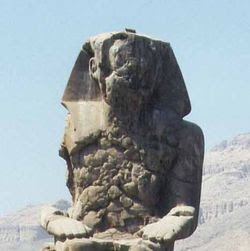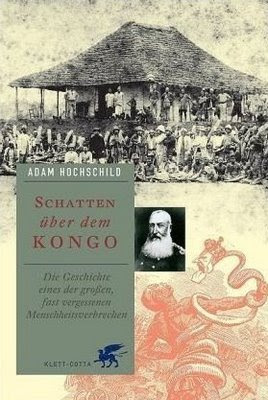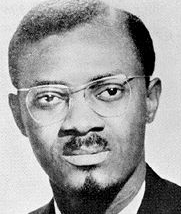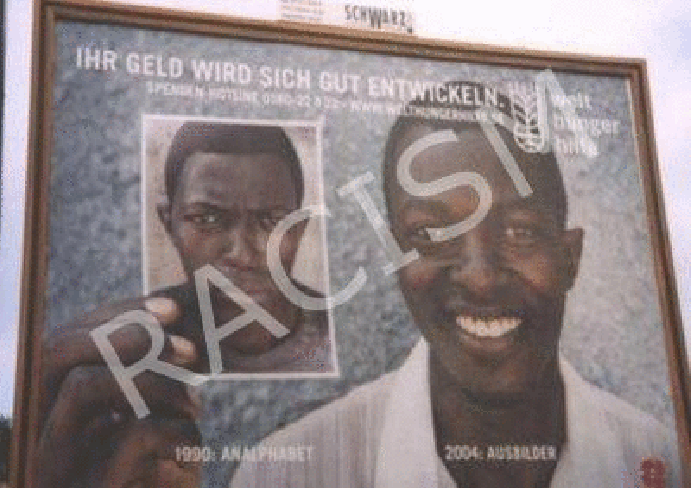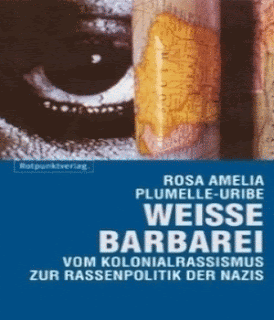 Not really having planned for it, in 1960 de Gaulle had to improvise structures for a collection of small newly independent states, each with a flag, an anthem, and a seat at the UN, but often with precious little else. It was here that Foccart came to play an essential role, that of architect of the series of Cooperation accords with each new state in the sectors of finance and economy, culture and education, and the military. There were initially eleven countries involved: Mauritania, Senegal, Cote d’Ivoire, Dahomey (now Benin), Upper Volta (now Burkina Faso), Niger, Chad, Gabon, Central African Republic, Congo-Brazzaville, and Madagascar. Togo and Cameroon, former UN Trust Territories, were also co-opted into the club. So, too, later on, were Mall and the former Belgian territories (Ruanda-Urundi, now Rwanda and Burundi, and Congo-Kinshasa), some of the ex-Portuguese territories, and Comoros and Djibouti, which had also been under French rule for many years but became independent in the 1970s. The whole ensemble was put under a new Ministry of Cooperation, created in 1961, separate from the Ministry of Overseas Departments and Territories (known as the DOM-TOM) that had previously run them all.
Not really having planned for it, in 1960 de Gaulle had to improvise structures for a collection of small newly independent states, each with a flag, an anthem, and a seat at the UN, but often with precious little else. It was here that Foccart came to play an essential role, that of architect of the series of Cooperation accords with each new state in the sectors of finance and economy, culture and education, and the military. There were initially eleven countries involved: Mauritania, Senegal, Cote d’Ivoire, Dahomey (now Benin), Upper Volta (now Burkina Faso), Niger, Chad, Gabon, Central African Republic, Congo-Brazzaville, and Madagascar. Togo and Cameroon, former UN Trust Territories, were also co-opted into the club. So, too, later on, were Mall and the former Belgian territories (Ruanda-Urundi, now Rwanda and Burundi, and Congo-Kinshasa), some of the ex-Portuguese territories, and Comoros and Djibouti, which had also been under French rule for many years but became independent in the 1970s. The whole ensemble was put under a new Ministry of Cooperation, created in 1961, separate from the Ministry of Overseas Departments and Territories (known as the DOM-TOM) that had previously run them all.The key to all this was the agreement signed between France and its newly-liberated African colonies which locked these colonies into the economic and military embrace of France. This Colonial Pact not only created the institution of the CFA franc, it created a legal mechanism under which France obtained a special place in the political and economic life of its colonies.
The Pacte Coloniale Agreement enshrined a special preference for France in the political, commercial and defence processes in the African countries. On defence it agreed two types of continuing contact. The first was the open agreement on military co-operation or Technical Military Aid (AMT) agreements, which weren’t legally binding, and could be suspended according to the circumstances. They covered education, training of servicemen and African security forces. The second type, secret and binding, were defense agreements supervised and implemented by the French Ministry of Defense, which served as a legal basis for French interventions. These agreements allowed France to have predeployed troops in Africa; in other words, French army units present permanently and by rotation in bases and military facilities in Africa; run entirely by the French.
According to Annex II of the Defence Agreement signed between the governments of the French Republic, the Republic of Ivory Coast, the Republic of Dahomey and the Republic of Niger on 24 April 1961, France has priority in the acquisition of those “raw materials classified as strategic.” In fact, according to article 2 of the agreement, “the French Republic regularly informs the Republic of Ivory Coast (and the other two) of the policy that it intends to follow concerning strategic raw materials and products, taking into account the general needs of defence, the evolution of resources and the situation of the world market.”
According to article 3, “the Republic of Ivory Coast (and the other two) inform the French Republic of the policy they intend to follow concerning strategic raw materials and products and the measures that they propose to take to implement this policy.” And to conclude, article 5: “Concerning these same products, the Republic of Ivory Coast (and the two others) for defence needs, reserve them in priority for sale to the French Republic, after having satisfied the needs of internal consumption, and they will import what they need in priority from it.” The reciprocity between the signatories was not a bargain between equals, but reflected the actual dominance of the colonial power that had, in the case of these countries, organised “independence” a few months previously (in August 1960).
In summary, the colonial pact maintained the French control over the economies of the African states; it took possession of their foreign currency reserves; it controlled the strategic raw materials of the country; it stationed troops in the country with the right of free passage; it demanded that all military equipment be acquired from France; it took over the training of the police and army; it required that French businesses be allowed to maintain monopoly enterprises in key areas (water, electricity, ports, transport, energy, etc.). France not only set limits on the imports of a range of items from outside the franc zone but also set minimum quantities of imports from France. These treaties are still in force and operational.
The creation of such a system was not the preserve of the French National Assembly or the result of any democratic process. It was the result of policies conducted by a small group of people in the President’s office, the ‘African Cell’, initially led by Foccart. For the past half-century, the secretive and powerful “African Cell” has overseen France’s strategic interests in Africa, holding sway over a wide swath of former French colonies. Acting as a general command, the Cell uses France’s military as a hammer to install leaders it deems friendly to French interests. In return, these countries give French industries first crack at their oil and other natural resources. Sidestepping traditional diplomatic channels, the Cell reports only to one person: the president. The Cell’s close ties to oil giant Elf Aquitaine, where top executives were jailed on corruption charges, was a source of embarrassment. And a former Cell chief has now been convicted of charges related to arms trafficking to Angola. These highly contentious policy issues never came before any of France’s democratically-elected bodies. African policy is the personal fiefdom of the President’s office.
This was true for De Gaulle, Mitterand, Giscard D’Estaing and Chirac. Sarkozy apparently has no contacts or ambitions in this field and has left Chirac’s Cell in place.
The Impact of the Colonial Pact
Some of the consequences for the Africa countries of the continuation of a policy of dependence are obvious – lack of competitive options; dependence on the French economy; dependence on the French military; and the open-door policy for French private enterprise. However, there are more subtle differences which arise.
The French companies in francophone Africa, by virtue of their protected monopolistic or oligarchic status, contribute a substantial share of the GDP of these countries. More importantly, however, they are often the single largest group of taxpayers. In many of these countries the French corporations pay over 50% of the national tax revenues collected. This gives them a unique status. Quite frequently the French say that without the French companies the economy of the African state will collapse. When coupled with the inability of the country to access its reserves it undoubtedly true. However, it doesn’t follow that private corporations from other countries, like the U.S. or China, would not contribute equally. This is one reason that the French are so concerned with allowing competition into the market place.
Another aspect of this is the inability of these francophone countries to collect taxes from its ordinary citizens. In a country like the Ivory Coast which has been divided for a number of years between the rebel North and the loyalist South, tax collections in the rebel regions have been impossible. The rebels have waxed fat on taxes and fees imposed on their captive populations and the sale of stolen goods from their regions. They do not want to disarm because it will have a deleterious economic effect on them, not just a political one.
The lack of a citizenry paying taxes breeds a gulf between the government and the citizens; mutual responsibility is missing in the equation. It is the job of the National Assembly to legislate for programs based on the supply of revenue to the state, but if there are insufficient revenues the National Assembly is frustrated in its role. If 80% of the funds go to France as part of the CFA franc project there is little left for the ministers and the National Assembly to allocate for social programs.
In many of the francophone countries, suffering under conditions of drought, lack of food; lack of health care; it is only French ‘aid’ to the national treasuries that sustains them. This ‘aid’ is often their own money which the French have shepherded for them.
There are many in Africa who have seen and understood the problem of the CFA franc and the Colonial Pact. Mamadou Koulibaly, the President of the National Assembly in the Ivory Coast has been an outspoken critic of the Colonial Pact and the dominance of the CFA franc. He has written an excellent book on the subject and gives speeches and interviews on the subject regularly. The problem is that very few people understand the fundamental iniquity of this French system; including many Africans.
If African nations are to achieve growth and participate fully in the opportunities of globalisation they must be freed from the fetters of this colonial albatross. In order to attract additional direct investment in the economies, as opposed to just portfolio investment this situation must be changed. In the words of President Koulibaly, “In Africa we do not need alms, our problem is not due to a lack of money. My conviction is that we must first of all clearly state our ownership rights over our own land and the resources in our soil which were taken away by the colonialists when they conquered our countries, and still be taken away through the Colonial Pact”.

![BOIS-CAIMAN-1791-CLUB [the african memory]](http://2.bp.blogspot.com/-y1iFgvvs3KM/XvjJ02WgIAI/AAAAAAAAFZU/0qL_dwjiGbcxVuoqpcexBcs7NLJ-z5fcACK4BGAYYCw/s1600/BannerBEST-aktuell----.gif)



